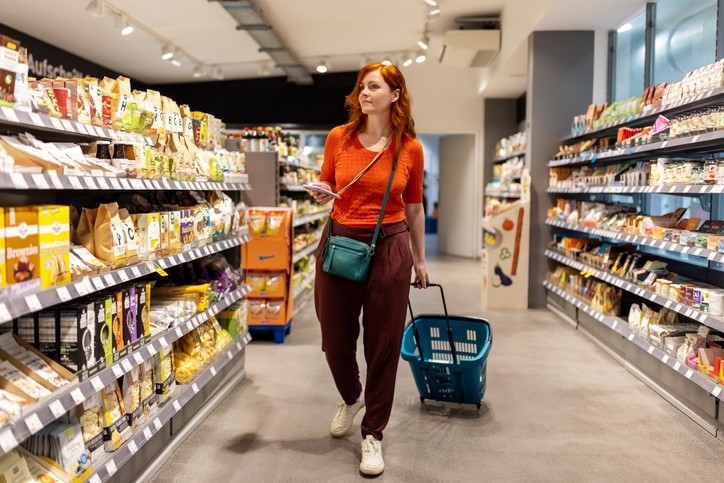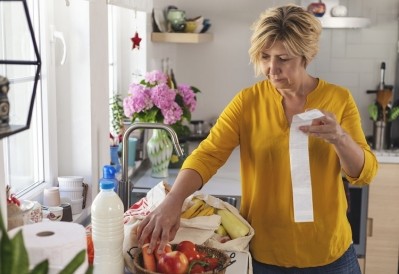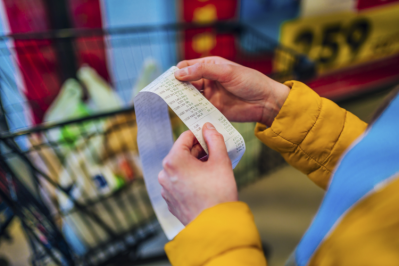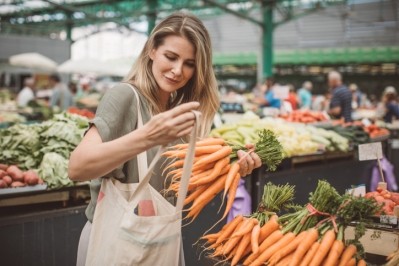European consumers cut back on food costs to cope with shortages and rising prices

Most European consumers (53%) are strongly worried about food shortages, reveals new research from a consortium of leading universities in Europe. The ‘Changes in food behaviour in times of crisis’ study has been led by Aarhus University, Denmark, with funding from EIT Food, supported by the European Institute of Innovation and Technology (EIT), a body of the European Union.
A survey of 5,000 consumers in 10 European countries found that more than half of consumers surveyed (55%) think that the war in Ukraine and ensuing economic and supply chain effects have made food production more vulnerable, while 54% think that the war is the main reason for increased food prices in Europe.
The project is a follow-up study to research conducted in 2020, which demonstrated that COVID-19 lockdown measures may have caused lasting behaviour change in relation to food consumption.
Since the last study, the effects of rising prices have been keenly felt by consumers, with shoppers observing price increases for most categories of food. The sharpest of these perceived price rises are in animal products, with 55% of consumers saying they have seen significant price increase in red meat, 52% in fish, and 51% in dairy.
Nearly half, meanwhile, think that these costs are being unfairly distributed, with 48% of those surveyed believing that the war has enabled food retailers and manufacturers to make more profit.
Consumers cut food costs by buying less or switching brands
Rising prices have put more of a strain on household budgets, increasing food insecurity in the region, Klaus G. Grunert, Professor of Marketing at Aarhus University and Founder and Director of the MAPP Research Centre, told FoodNavigator. "We asked whether it is generally a struggle to have enough money to go shopping for food. 19.5% answer that this is ‘usually’ or ‘every time’ the case, up from 15.4% in 2020. 18.4% report that this is ‘never’ the case, down from 26.8% in 2020," he observed.
Consumers are reacting to increased prices by cutting costs where they can, including buying less, buying cheaper brands, and shopping at cheaper stores. Nearly four in 10 consumers (37%) report that they are buying less red meat, while a third are buying less fish and poultry (33% for each).
Shoppers are also cutting back entirely on certain categories to save money, with one in 10 consumers (12%) having stopped buying convenience foods altogether, and 10% having stopped buying alcoholic beverages.
To cut costs on cereals and dairy products, a third of consumers say they have switched to buying a cheaper brand (35% and 33% respectively).
Shoppers making more mindful choices
As well as cost-saving behaviours, consumers across Europe are also making more deliberate purchasing choices. Over half 52% say they are now checking prices more than they did before the pandemic, an increase from 31% in 2020.
Four in 10, meanwhile (41%), say they are making fewer unplanned purchases than before, up from 26% in 2020. Four in 10 are also checking use-by dates (40%) or using labels to compare products more (39%).
Looking at trends of consumer behaviours with regards to cooking and eating, the project used the findings to group European consumers into five categories.
This grouping shows that a third (33%) of consumers report that they now pay more attention to food prices, but otherwise report no major changes, while a third (32%) say they are making more mindful food choices, such as paying greater attention to labels or seeking out new food innovations.
Only 19% of consumers showed resilient food behaviours, meaning that their behaviour remained mostly unchanged.
Whether changing shopping patterns will have sticking power could depend on if they are motivated by mindfulness or have been adopted in response to price pressures, Professor Grunert suggested. "We believe that the changes pointing at more mindful food choices will persist. This is based on the finding that these trends were already under development two years ago in the wake of COVID and that they are consistent with pre-COVID goals that many consumers had but found hard to implement. Changes that are specific reactions to price increases may, however, not persist. This goes for changes in buying alcoholic drinks and possibly also dairy and meat," he told us.
Policy initiatives and innovation needed to promote sustainable behaviours
Dr Andy Zynga, CEO of EIT Food, suggested the research pointed to areas that the food industry needs to innovate in to boost resilience and support a transition towards more sustainable diets.
“The ongoing Russian war against Ukraine has brought into sharp focus just how fragile our food system can be,” he commented. “We urgently need to scale and support innovation to address supply chain issues and ensure that we are producing enough affordable, nutritious food for all; however, we must do so sustainably, fairly and efficiently. In order to meet and prevent future challenges, we have to build a system that puts resilient, future-proof and affordable solutions at its heart.”
For Professor Grunert, the survey's findings should also be used as a tool to inform European policy as legislators work to promote a healthier and more sustainable food system. "Though the crisis in Ukraine and global economic downturn present unique and considerable threats to the European food system, we hope that this new, comprehensive research will empower decisionmakers to craft informed and timely policies that adequately tackle mounting consumer concerns regarding spiralling food costs.
"It is also important that policymakers continue to uplift the significant progress made by consumers to make more mindful, healthy and sustainable food choices as we continue to address the growing obesity and sustainability challenges of our time.”
What policy direction would the food systems expert advocate? "The results suggest that policy initiatives aimed at the green transition – for example, eco-labelling – are still highly relevant and should not be delayed in spite of an increased focus on prices. At the same time, the food sector faces a dilemma with simultaneous demands for more sustainable food and affordable prices," he responded.
Economic worries make consumers more cautious
Economic concerns are also making European consumers more conservative and economically cautious in their purchase decisions, according to Rochelle Schaetzl, Marketing Manager Europe at Griffiths Foods.
"For such a long time trends were grouped into convenience, healthy nutrition, experience and efficiency. What we see now over the last 12 months is that health, nutrition, and sustainability is still important, but consumers are prepared to compromise on convenience for economic reasons,” Schaetzl told FoodNavigator at the recent FiE Paris event.
Noting a return to ‘more classic, safer choices’, she said: “People are not prepared to take a risk with expenditure on something they are not 100% sure on.”
As a result, Griffiths is having ‘more valuable conversations’ with its food manufacturing clients, she told us. “Our customers are asking for simple, stable, cost-optimised solutions that will appeal to the mass consumer. Customers that were not previously open to having conversations around vertical integration or optimisation are saying ‘let’s open our whole value chain and see where we can work together to find economies of scale and better solutions that work for both parties’.
“I think it's a good think because we are having more sensible conversations and we can have conversations with our customers that we were never able to have before.”
Griffiths was nominated as a finalist for a “Sensory Innovation” award at FiE with Savour Flex, which aims to addresses consumer demands to snack healthier and feel satisfied in terms of taste at the same time.
It also launched a new “Made with Sustainable Sourced Ingredients” innovation. “In snacks, for example, there are more requests for basic flavours, classic flavours like a cheese and onion but with a more sustainable twist,” continued Schaetzl. “Those consumers not cash-strapped by the economic situation are saying they want to use the money they have to make more sustainable and more nutritious choices. So there's still that premium element to the market but it seems to be driven by more responsible choices as opposed to extravagant and indulgent flavours.”

















